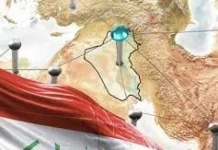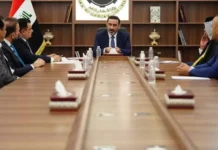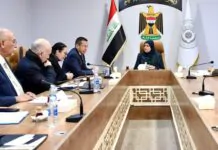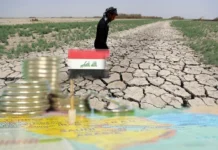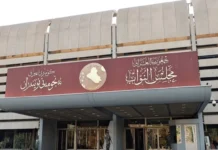Tishwash: Monetary policy raises the value of the dinar and reduces reliance on the parallel market
The Iraqi dinar has recently recorded strong performance against the dollar, driven by a series of monetary measures adopted by the Central Bank, which have contributed to reducing demand for hard currency in the parallel market and enhancing the confidence of traders in official channels.
This improvement comes amid ongoing government efforts to consolidate financial stability and stimulate business activity through effective monetary instruments and transparent and direct financing mechanisms.
Deputy Governor of the Central Bank of Kuwait, Dr. Ammar Hamad, confirmed to Al-Sabah that this increase reflects the success of the monetary policy pursued by the bank in reducing reliance on the parallel market and providing safe and transparent sources of financing for foreign trade. He explained that this policy has enabled the commercial family to obtain dollars through official channels that adhere to international standards, without having to resort to the unregulated market.
Hamad noted that the Central Bank continues to work toward consolidating the local banking system and raising its operational efficiency to levels consistent with international banking standards, making it a fundamental pillar in driving economic development in Iraq. He added that the bank is adopting advanced mechanisms that enable banks to offer diverse banking products that support various economic sectors and facilitate financing and cash flow operations.
For his part, the Prime Minister’s Advisor for Financial Affairs, Dr. Mazhar Mohammed Salih, explained that a number of factors contributed to strengthening the value of the dinar, most notably the weak demand for the dollar in the parallel market, as a result of the Central Bank’s policies regarding financing foreign trade for the private sector. He explained that the bank strengthens Iraqi banks’ dollar balances through their correspondents abroad, especially banks with a high credit rating (AAA), which speeds up the execution of international transfers and reduces the need for dollars in the local market.
He also indicated that the move towards using alternative currencies such as the euro, yuan, dirham, and lira in banking transactions has helped reduce excessive reliance on the dollar.
Saleh also noted that enabling small businesses to access financing sources directly through Iraqi banks, without costly intermediaries, has helped reduce operating costs and improved commercial efficiency, as this segment represents approximately 60% of private sector trade. He added that travelers can now easily obtain their foreign currency dues via payment cards at a subsidized exchange rate of 1,320 dinars to the dollar, in addition to the ability to receive dollars in cash at Iraqi airports, which has eased pressure on the parallel market.
In the same context, economic expert Nazir Al-Saadi emphasized that the money transfer services provided by the Central Bank have become safer and more effective, which has prompted business families to move away from the parallel market, which is characterized by significant risks and high costs.
He explained that relying on official transfers not only ensures the safety of transactions, but also reduces the final cost of imports, which is positively reflected in the prices offered to consumers. He added that random transfers from the parallel market often caused losses to importers due to failure to implement them or due to price fluctuations, while the Central Bank mechanism provides a stable financial system that preserves the value of the currency and reduces Opportunities for manipulation. link
************
Tishwash: The US Embassy: the participation of an Iraqi delegation in an annual investment summit.
The US Embassy in Baghdad announced on Sunday that an Iraqi delegation will participate in the annual SelectUSA Investment Summit this May.
The embassy said in a statement that it is leading a delegation of 46 business leaders from Iraq, including the Kurdistan Region of Iraq, to the United States to participate in the annual SelectUSA Investment Summit, which is being held in the Washington, D.C., area from May 11-14.
The embassy added that the delegation “includes a diverse range of sectors, including technology, cybersecurity, tourism, hospitality, food and beverage, franchising, agriculture, construction, investment, pharmaceuticals, real estate, and oil and gas. This diversity highlights the broad opportunities for cooperation and investment between the United States and Iraq.”
It emphasized that the summit “is the largest event dedicated to promoting foreign direct investment in the United States,” noting that it “brings together international investors, representatives from state and local governments, and government officials to facilitate investment in the American economy.”
She explained that the summit “is organized by the Ministry of Trade and provides essential information and services to help foreign investors navigate the investment process in the United States,” noting that it “aims to help Iraqis identify investment opportunities in the United States and grow their businesses.”
The embassy continued in its statement, “This visit is part of a series of important visits aimed at strengthening economic relations between Iraq and the United States across various sectors.”
It concluded by saying, “During May, a delegation from the U.S. International Development Finance Corporation visited Baghdad, and in April, more than 100 businessmen and companies from the American-Iraqi Chamber of Commerce participated in a business forum in Baghdad.” link
************
Tishwash: The 2025 budget schedules will be finalized by the end of May.
MP Baqir Al-Saadi stressed that “the existence of 2025 budget schedules is important to ensure project funding and provide financial support for local governments, enabling them to proceed with implementing service projects across all sectors.”
Al-Saadi indicated in a press interview seen by (Al-Masry Al-Youm, Sunday 5/11/2025) that “the 2025 budget schedules will be decided by the end of this May.”
He said, “Despite talk of the possibility of postponing the budget resolution until after the November 2025 elections, there are indications that the budget schedules may be finalized by the end of this month. Thus, after the end of the legislative recess, the parliament will have the opportunity to finalize it or hold extraordinary sessions to discuss and vote on it.”
He explained that “the delay in finalizing these schedules and the Cabinet’s failure to send them to the Parliamentary Finance Committee for review before submitting them to the Parliament Presidency for a vote has negative repercussions on the funding of service projects in ministries and local governments.” link

